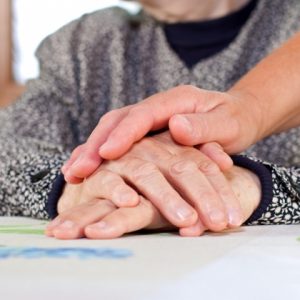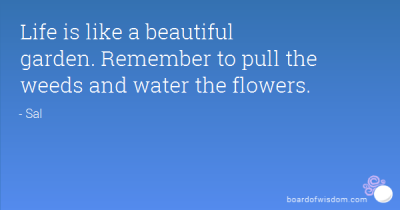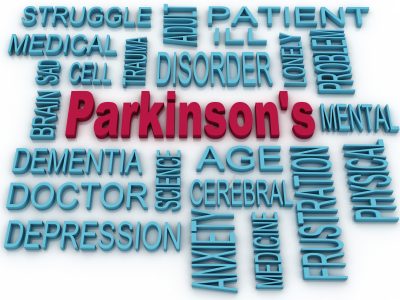 As a long time family caregiver and professional in this field, I can tell you that the myriad of emotions that caregivers face on a daily basis is complex and ever-changing. That said, grief, guilt, and anxiety are certainly at the top of the list. How can we, as professionals in this field, better understand family needs and partner alongside them on this difficult journey?
As a long time family caregiver and professional in this field, I can tell you that the myriad of emotions that caregivers face on a daily basis is complex and ever-changing. That said, grief, guilt, and anxiety are certainly at the top of the list. How can we, as professionals in this field, better understand family needs and partner alongside them on this difficult journey?
Let’s talk first about the emotions that family members experience in deciding to move their loved one into assisted living or another level of care. First, families are often focusing a tremendous amount of attention on helping their loved one cope. This can be overwhelming in itself, and certainly where the grief, guilt, and anxiety begin to kick in. Grief may be the sadness of realizing that their loved ones are aging. If there is chronic or serious illness, anticipatory grief might be the realization that death is in the foreseeable future. If a loved one is living with dementia, grief is felt over the loss of who that person once was.
Families, especially primary caregivers live with guilt. I often tell caregivers this is an added benefit of the job. Often second-guessing decisions, caregivers tend to be overly sensitive to their loved one’s own emotions. At the same time, juggling family, job responsibilities, and caregiving duties can leave a person feeling like they are not doing a good job in any of those areas. When guilt piles up, it often spills to feelings of unfounded fear and doubt.
Anxiety, like grief and guilt, can be caused by and can cause a snowball of other emotions. When a family member is the one “in charge” of taking care of the many tasks associated with moving their loved one to a care facility, anxiety kicks in quite easily. What often happens is that when one is under stress, rational decision making sometimes goes out the window.
It’s important that as professionals we assure families that, as hard as this process is, it is normal to feel these emotions. Helping them with resources (movers, real estate professionals, support groups, etc. can ease some of the burdens and also provide a network of people who are experienced and trusted).
While family members, especially primary caregivers are learning, most have not walked this path before.
If there is one piece of advice that professionals need to remember it is that families know far less about the complex world of caregiving, levels of care, chronic illness, Alzheimer’s and other dementia, legal and financial planning and dealing with stress and burnout – than we expect them to! This is not to diminish the admirable responsibilities that caregivers take on. There is just so much to learn. I was years into caregiving myself before I even realized what I needed to know – and then under stress, I’d forget the things I did learn!
Professionals can be a much-needed gentle guide through this process. Here are a few tips that may benefit the family:
- Give them a checklist of things to do before their loved one moves. This list may include what to bring in the way of furniture, clothing and personal items.
- Invite them for lunch and go over the list and any concerns. This is a good time to get to know a bit more about their future resident, but also the relationships of the family.
- Assure the family that as difficult as this time is, it will get easier and that staff is there to ease the transition for everyone.
- Make sure the family feels comfortable with the staff that will be most involved in the initial move and transitioning their loved one. Knowing and discussing any questions upfront will save day-of moving confusion.
- Encourage the family to give their loved one a few days to settle in. They will benefit by the break, and many times it helps the new resident get acclimated to their new home.
A smile goes a long way, a hug calms fears, and humor eases tension.
Pam Brandon is President/Founder of AGE-u-cate Training Institute and a passionate advocate for older adults and those who serve them.
 I just can’t help but talk about gardening this time of year. I admit it – I’m addicted. It’s not uncommon for me to get my garden gloves on early on a Saturday morning and still have them on when at sundown. Once I start working in my garden, I just can’t stop – especially this time of year. So why am I going to talk about caregivers resentment and weeds in your garden?
I just can’t help but talk about gardening this time of year. I admit it – I’m addicted. It’s not uncommon for me to get my garden gloves on early on a Saturday morning and still have them on when at sundown. Once I start working in my garden, I just can’t stop – especially this time of year. So why am I going to talk about caregivers resentment and weeds in your garden? Eldercare is becoming more about caring for those with dementia. Because our fastest growing segment of the population are those 85 and older, it correlates with the rise in people living with dementia. In fact, one in three people age 85 and older are living with some level of dementia. There are over 1 million Americans living with Parkinson’s Disease and over 10 million worldwide. This number is also rising with the increase in longevity.
Eldercare is becoming more about caring for those with dementia. Because our fastest growing segment of the population are those 85 and older, it correlates with the rise in people living with dementia. In fact, one in three people age 85 and older are living with some level of dementia. There are over 1 million Americans living with Parkinson’s Disease and over 10 million worldwide. This number is also rising with the increase in longevity. The Big “S” word. It comes up more often than you would think and for good reason. Adult children who are in any phase of caregiving for their parents, even in the very beginning stages share their frustrations of their parents suddenly being stubborn. Why is this happening?
The Big “S” word. It comes up more often than you would think and for good reason. Adult children who are in any phase of caregiving for their parents, even in the very beginning stages share their frustrations of their parents suddenly being stubborn. Why is this happening?